Watch: Virtual Launch of Uganda’s Efficient Productive Use of Energy Chapter
Uganda’s Efficient Productive Use of Energy Chapter was recently launched in a virtual event.

Uganda’s Efficient Productive Use of Energy Chapter was recently launched in a virtual event.


Today, as part of the US government’s Power Africa initiative, USAID launched a Women’s Local Chapter on Efficient Productive Use of Electricity (EPUE) in Uganda that brings together women entrepreneurs who rely on energy for production and advises them to leverage clean energy for producing, processing, and adding value to goods and services. The Chapter will serve as a networking, capacity building, and information repository for members using EPUE technologies.
During the launch, USAID announced the provision of microgrants to seven women-owned businesses in Uganda to help them upgrade their equipment to energy-efficient models that increase their productivity. The microgrants will cover 50 percent of the cost of purchasing modern equipment like sewing machines, institutional electric ovens, ice cream machines, tailoring and embroidery machines, electric cookers, microwaves, juice extraction machines, deep freezers, and refrigerators. USAID awarded the grants under its Energy Empowers East Africa (EEEA) activity, led by the Lawrence Berkeley National Laboratory (Berkeley Lab) and implemented by the Clean Energy Enthusiasts. This activity promotes energy efficiency, access, and inclusion for women-led projects in Uganda. Stephane de la Rue du Can, research scientist at Berkeley Lab, said, “The grants demonstrate USAID’s commitment to the economic empowerment of women by increasing the women’s capacity to benefit from electricity by using EPUE equipment.”
Suriana Kekimuri, program participant, a widow based in Kamwenge District, said that the freezer she received consumes less electricity and therefore saves her money. “It will increase my sales from fresh juice and porridge by more than 300 percent. I will be able to take care of my (two) children from this income.”
The Women’s Local Chapter on EPUE was formalized through the signing of a Memorandum of Understanding between Clean Energy Enthusiasts, which is Energy Empowers East Africa program’s local implementer, and Uganda Women in Trade and Manufacturing, a local women’s trade organization. Through this chapter, Clean Energy Enthusiasts will raise awareness and train many of the association’s 2,300 members to access energy and deploy new technologies in their businesses.
For more information, please contact: Cindy Nkwanzi (cindy@energyenthusiasts.co.ug).
Energy Empowers East Africa (EEEA) is a USAID-funded project focusing on increasing the EPUE among women-led and women-owned businesses in Uganda. EEEA is implemented by Berkeley Lab with support from Clean Energy Enthusiasts, as the Ugandan implementer.
The Lawrence Berkeley National Laboratory (Berkeley Lab) is a U.S. Department of Energy (DOE) Office of Science national laboratory managed by the University of California. The EEEA project is part of the Energy Efficiency for Development (EE4D) initiative that provides technical resources and expertise to support USAID partner countries in advancing energy efficiency strategies and achieving more resilient and sustainable economic development. Based on a solid partnership between USAID and Berkeley Lab, EE4D helps with policy, planning, and deployment support for energy-efficient development and smart technologies uptake across the world.
Clean Energy Enthusiasts (CEE) is a Ugandan energy advisory firm that provides management, capacity building and transaction advisory services to clients on rural electrification, energy access (both on-grid and off-grid), energy business modeling, efficient and productive use of energy, access to finance, and investment facilitation.
Uganda Women in Trade and Manufacturing (UWTM) is an association that equips businesswomen with relevant, cutting-edge business development skills, capacity building, awareness and networking opportunities and supports financial inclusion. The Association’s priority sectors include but are not limited to value addition, manufacturing, cottage industries, retailers, wholesalers, and other traders.
Energy Empower East Africa is a woman-focused demand-side program that seeks to unlock the benefits of modern energy access for women, highlighting the crucial role of women in driving Productive Use of Electricity (PUE) initiatives.
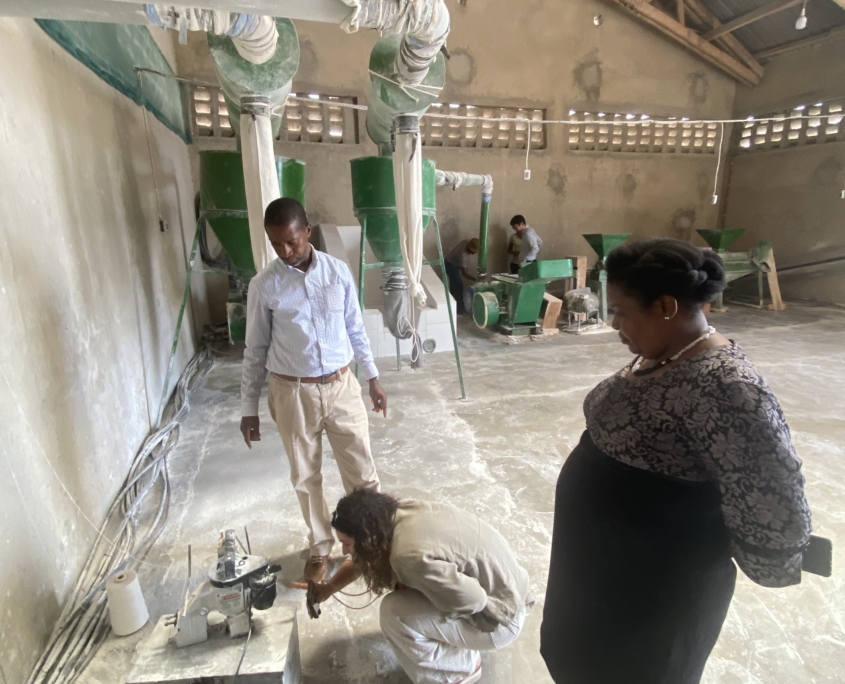
During program implementation, EEEA identified critical gaps and constraints that inhibit women from leveraging on energy efficient and productive use technologies.
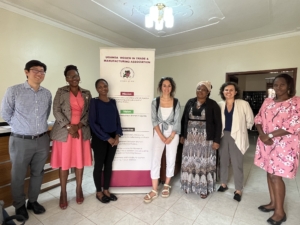
To address this, EEEA entered into a Memorandum Of Understanding with the local association Uganda Women in Trade and Manufacture (UWTM) to establish a dedicated EE and PUE chapter for women entrepreneurs. This local chapter will provide access to essential services such as:
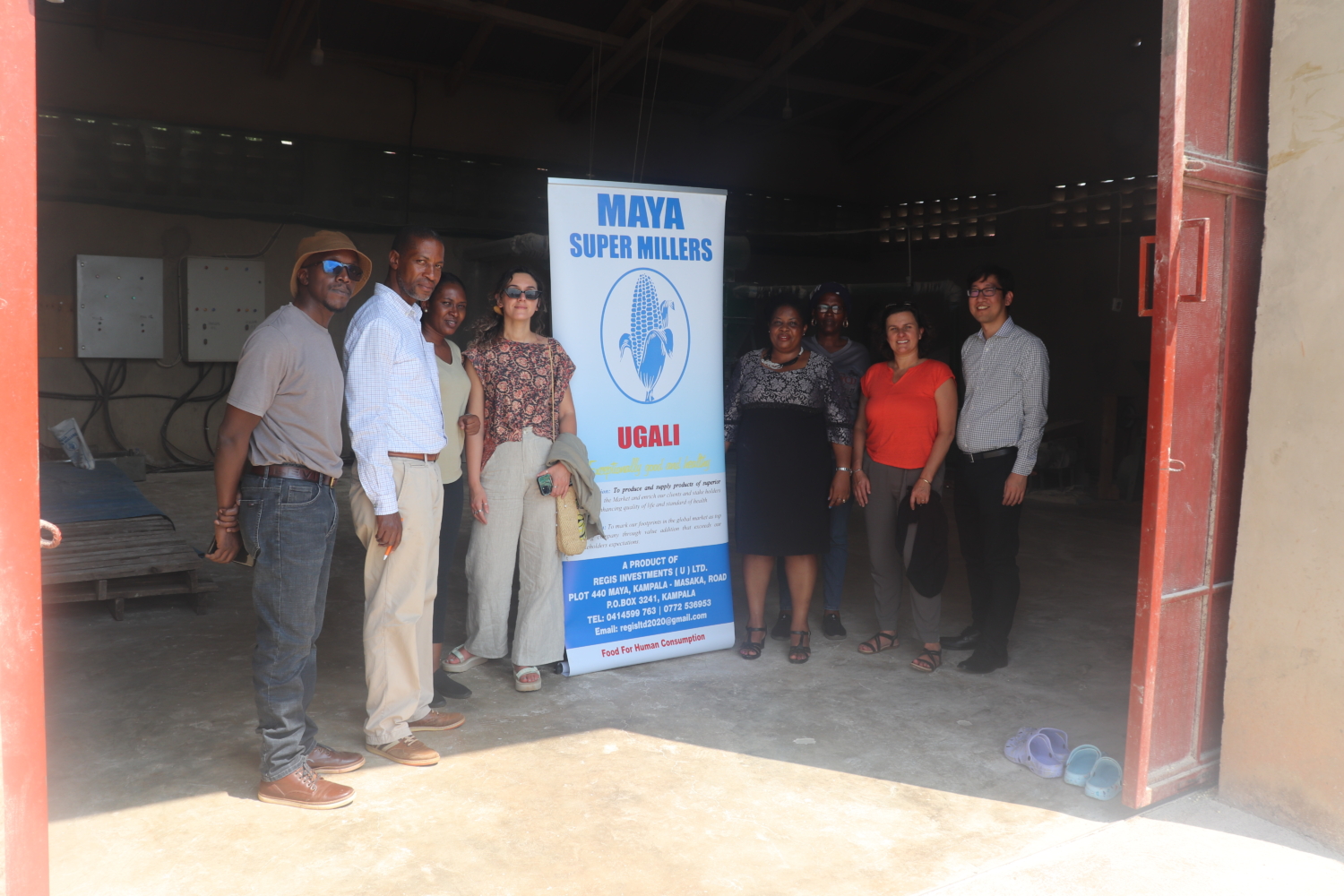 Presently, approximately 60 women have expressed interest in joining the association, with the application process currently underway. As part of their efforts, the Berkeley Lab team and USAID conducted a site visit to a maize milling business, gaining valuable insights into the opportunities and challenges surrounding the efficient and productive use of electricity in such ventures. Self-help groups and networks can act as a bridge between women entrepreneurs and other stakeholders, and can also work as platforms that promote solidarity among women, bringing them together on:
Presently, approximately 60 women have expressed interest in joining the association, with the application process currently underway. As part of their efforts, the Berkeley Lab team and USAID conducted a site visit to a maize milling business, gaining valuable insights into the opportunities and challenges surrounding the efficient and productive use of electricity in such ventures. Self-help groups and networks can act as a bridge between women entrepreneurs and other stakeholders, and can also work as platforms that promote solidarity among women, bringing them together on:
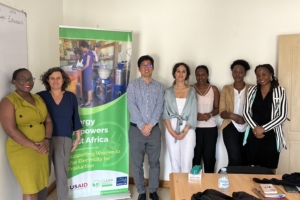 issues of financing,
issues of financing, .
International development project enables Ugandan women to grow small businesses with energy-efficient electrical equipment – and fight climate change at the same time. Women who run small businesses in Uganda can build energy efficiency into their business plans thanks to a new project led by Lawrence Berkeley National Laboratory (Berkeley Lab) and the U.S. Agency for International Development (USAID), in partnership with Clean Energy Enthusiasts (CEE), an energy advisory company based in Uganda.
The Energy Empowers East Africa program organized a matchmaking event on March 16th in Uganda, Mbarara District where women entrepreneur connected with financial institutions and local vendors of electric appliances. This event is a continuation of the program’s efforts to promote gender inclusion in electrification programs throughout East Africa. In Uganda, the program has been providing training on business development skills, knowledge building on energy efficiency, and productive use of electricity, and access to financing to women-run micro and small businesses. The matchmaking event provided a platform for these women to showcase their business plans developed during the training phase, network with financial institutions, and access the capital needed to invest in efficient and productive electric equipment. By increasing access to energy services and capital, women entrepreneurs get empowered to expand their businesses, promoting thus inclusive economic growth in East Africa. This event has the potential to drive sustainable economic growth and promote gender equality in the region.
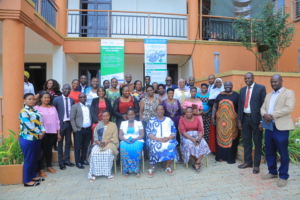
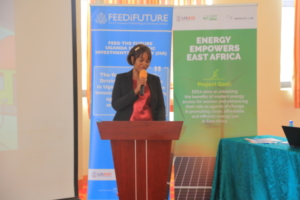
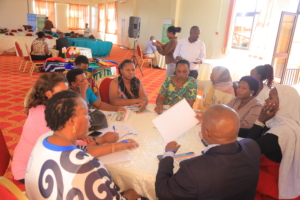
Shamim Jaffar, a business owner in rural Uganda, had never learned how appliances like her refrigerator use electricity. “I had no idea what the temperature dial switch does,” she explained.
Shamim Jaffar, a business owner in rural Uganda, had never learned how appliances like her refrigerator use electricity. “I had no idea what the temperature dial switch does,” she explained. “I didn’t expect that opening the fridge [for long periods] could have such an impact on its electricity consumption,” agreed Irene Tumusiime. “As a retail shop owner, I am constantly opening my fridge to serve cold drinks to customers.”
Read the article U.S. Agency for International Development on Medium here.
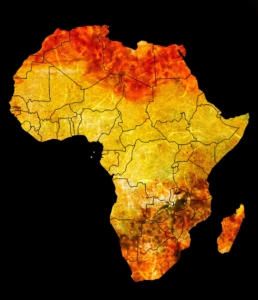 USAID’S Scaling Up Renewable Energy (SURE) program convened a webinar on October 27th, 2022 with participation by TetraTech, CLASP and LBNL to identify potential energy efficiency interventions in Sub-Saharan Africa (SSA), region that is experiencing a rapid population growth and increased energy demand in the sectors of transportation, cooling, buildings and agriculture.
USAID’S Scaling Up Renewable Energy (SURE) program convened a webinar on October 27th, 2022 with participation by TetraTech, CLASP and LBNL to identify potential energy efficiency interventions in Sub-Saharan Africa (SSA), region that is experiencing a rapid population growth and increased energy demand in the sectors of transportation, cooling, buildings and agriculture.
During its participation, LBNL highlighted the building blocks of energy efficiency (standards and retrofits, market priming and financing and policy planning) and provided an example of a successful technical assistance project in South Africa, where significant energy savings were achieved by supporting a standards and labeling program targeting key appliances.
The webinar was attended by more than a hundred representatives from consulting and development organizations in SSA and provided useful inputs to SURE for the development and implementation of impactful energy efficiency interventions in the region.
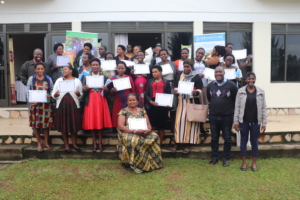
Certificate award ceremony of a 3-Day EEEA Training Workshop in Bushenyi, Uganda – Nov 14th to Nov 18th, 2022. LBNL works with a local partner, Clean Energy Enthusiasts (CEE), to run the EEEA program.
The USAID’s Energy Empowers East Africa (EEEA) program, whose objective is to advance the role of women entrepreneurs as agents of change through productive use of electricity (PUE) and the use of energy efficient appliances, concluded its 6th week of trainings in Bushenyi, Uganda. The training series, to be delivered in a total of 8 districts in Uganda, covers instruction on energy use, business planning and financial management, in addition to one-on-one coaching and mentoring sessions with participation of local utilities, local banks and government agencies. The trainings will culminate in the presentation of 16 business plans to financiers at a matchmaking event to be held during the first week of February 2023. EEEA is partnering with local consultant Clean Energy Enthusiasts (CEE) to deliver the training and is also collaborating with USAID’s Feed the Future’s Strategic Investment Activity (SIA) to build a pipeline of investment opportunities on PUE inclusive of women. The event, to be co-organized with SIA, will bring together PUE equipment vendors, financing organizations, women entrepreneurs, government of Uganda officials from the Ministries of Gender and Energy, women and entrepreneurial support programs, Berkeley Lab and USAID/Uganda.
The EEEA training series represents a one-of-a-kind effort to encourage women entrepreneurs working in different economic sectors in rural and peri-urban regions of Uganda to use efficient and productive electric equipment to unlock the benefits of energy access and expand their businesses. It also contributes to including women in SIA’s pipeline of investment opportunities in the region.
Countries in sub-Saharan Africa are working to provide accessible, affordable, and reliable energy while navigating a transition to net-zero emissions. At the same time, these countries are experiencing rapid population growth which has major implications for energy demand for transportation, agriculture, buildings, and cooling.
USAID’s Scaling Up Renewable Energy (SURE) program held a webinar that explores opportunities in energy efficiency interventions in Sub-Saharan Africa and successful approaches for energy efficiency planning and implementation.
Energy efficiency technologies, policies, and financing can reduce electricity costs for businesses and consumers over the long term while creating local jobs and reducing emissions. Energy efficiency also reduces public expenditure on generation capacity and is a cost-effective way to boost competitiveness in industrial and commercial sectors that can spur economic growth.